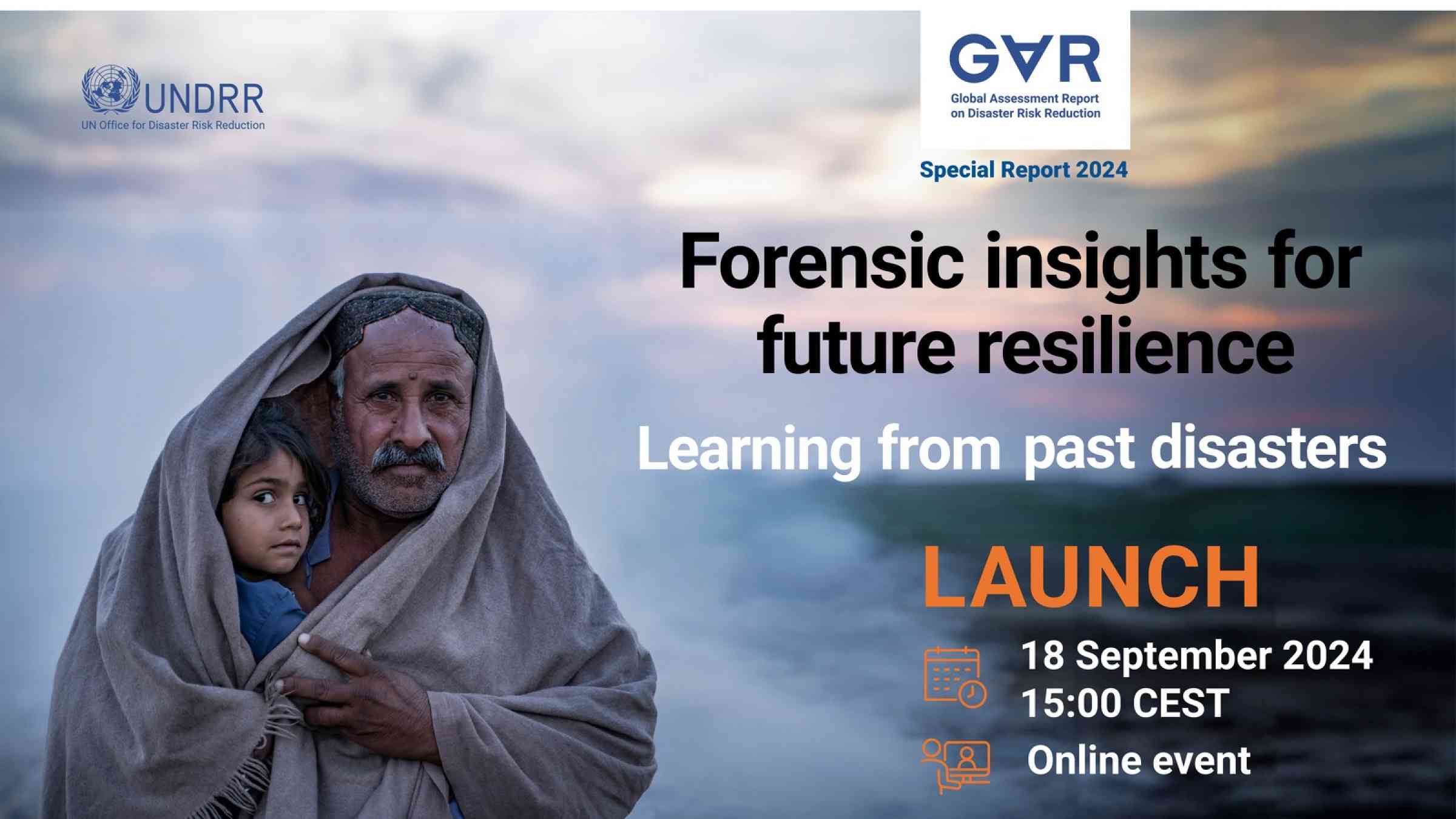Launch of the GAR Special Report 2024 - Forensic insights for future resilience: Learning from past disasters

- English
Time
15:00 GMT+2
About
By the time that Cyclone Freddy split into several smaller storms in March 2023, it had spent a total 36 days travelling from the Australian coast and across the Indian Ocean before smashing into Madagascar, Mozambique, and Malawi. Breaking multiple records for its power and energy, Freddy’s category five winds brought rain, mudslides, and storm surges. And when it was over, Freddy had killed more than 400 people and left a trail of wreckage across the region, including tens of thousands of migrants. Meteorologists said the storm was unprecedented. Less than a year later however, Hurricane Beryl, caused similar amounts of damage. The earliest category five hurricane ever recorded, Beryl battered the Caribbean region, destroying or severely damaging as many as 90 percent of homes in some areas. One of the most powerful storms to ever pummel Jamaica and other Caribbean nations, Beryl also left millions in the US without power.
As global temperatures increase, shattering new records all around the world, more and more countries are reporting disastrous hazard events. In July 2023, UN Secretary-General, António Guterres, warned that “Extreme weather is becoming the new normal,” and urged countries to protect their people from the searing heat, fatal floods, storms, droughts, and raging fires that will surely follow. Recent hazard events – including powerful and dangerous storms - have certainly been stronger than historical norms. They have often been stronger than many predicted. And they certainly provide disturbing insights into how the “new normal” might be.
The GAR Special Report 2024 is part of a response. It helps to build resilience by asking: How can we learn from recent disasters? How can we protect more people when the next hazard hits? How can we reduce the hazard risks to minimize death and destruction and to avoid disasters?
The report applies ‘forensic’ disaster analysis to look at ten recent events, aiming to understand better the unique footprints - or disaster DNA - of these specific occasions. Forensic Investigations of Disasters (FORIN) aims to improve the understanding of disaster risk construction and disasters. It offers policy options and evidence-based recommendations for better corrective, as well as prospective, approaches to integrate disaster risk reduction into development policy and processes. This involves identifying underlying causes, risk drivers, and entry points for decision making so that risks can be recognized, evaluated, and addressed.
The report will be launched by Kamal Kishore, Special Representative of the Secretary-General for Disaster Risk Reduction. The event will feature contributions from an expert panel followed by Q&A from the audience. The meeting will be in a hybrid format.